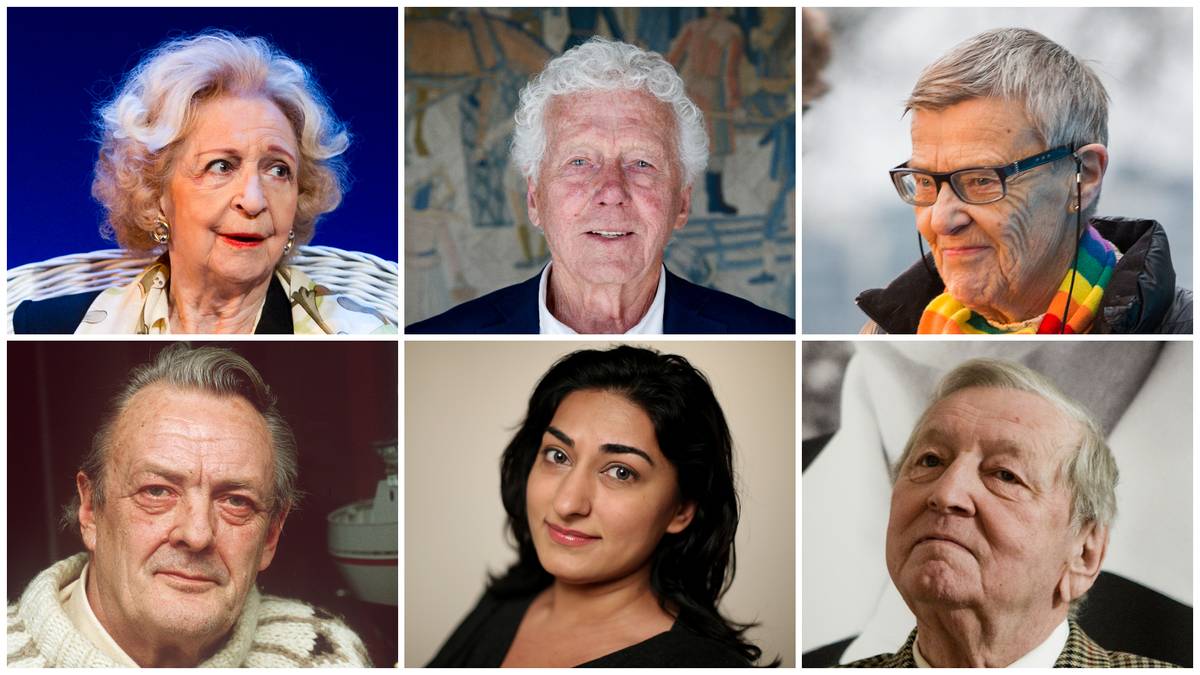Tatiana Maria
Majesty
- Joined
- Oct 15, 2013
- Messages
- 7,147
- City
- St Petersburg
- Country
- United States
The Constitution of the Kingdom of Norway
https://lovdata.no/dokument/NL/lov/1814-05-17
English translation of the Constitution of the Kingdom of Norway
https://lovdata.no/dokument/NLE/lov/1814-05-17
The following articles of the Constitution include mentions of the royal family (I am not including articles which refer only to the King in this list).
https://lovdata.no/dokument/NL/lov/1814-05-17
English translation of the Constitution of the Kingdom of Norway
https://lovdata.no/dokument/NLE/lov/1814-05-17
The following articles of the Constitution include mentions of the royal family (I am not including articles which refer only to the King in this list).
Article 6.
The order of succession is lineal, so that only a child born in lawful wedlock of the Queen or King, or of one who is herself or himself entitled to the succession, may succeed, and so that the nearest line shall take precedence over the more remote and the elder in the line over the younger.
An unborn child shall also be included among those entitled to the succession and shall immediately take her or his proper place in the line of succession as soon as she or he is born into the world.
The right of succession shall not, however, belong to any person who is not born in the direct line of descent from the last reigning Queen or King or a sister or brother thereof, or is not herself or himself a sister or brother thereof.
When a Princess or Prince entitled to succeed to the Crown of Norway is born, her or his name and time of birth shall be notified to the first Storting in session and be entered in the record of its proceedings.
For those born before the year 1971, Article 6 of the Constitution as it was passed on 18 November 1905 shall, however, apply. For those born before the year 1990 it shall nevertheless be the case that a male shall take precedence over a female.
Article 7.
If there is no Princess or Prince entitled to the succession, the King may propose his successor to the Storting, which has the right to make the choice if the King's proposal is not accepted.
Article 21.
The King shall choose and appoint, after consultation with his Council of State, all senior civil and military officials. These officials shall have a duty of obedience and allegiance to the Constitution and the King. The Royal Princes and Princesses must not hold senior civil offices.
Article 34.
The King shall make provisions concerning titles for those who are entitled to succeed to the Crown.
Article 35.
As soon as the heir to the throne has completed her or his eighteenth year, she or he is entitled to take a seat in the Council of State, although without a vote or responsibility.
Article 36.
A Prince or Princess entitled to succeed to the Crown of Norway may not marry without the consent of the King. Nor may he or she accept any other crown or government without the consent of the King and the Storting. For the consent of the Storting two thirds of the votes are required.
If he or she acts contrary to this rule, they and their descendants forfeit their right to the throne of Norway.
Article 37.
The Royal Princes and Princesses shall not personally be answerable to anyone other than the King, or whomever he decrees to sit in judgment on them.
Article 41.
If the King is absent from the realm unless commanding in the field, or if he is so ill that he cannot attend to the Government, the person next entitled to succeed to the throne shall, provided that he has attained the age stipulated for the King's majority, conduct the Government as the temporary executor of the Royal Powers. If this is not the case, the Council of State will conduct the administration of the realm.
Article 44.
The Princess or Prince who, in the cases mentioned in Article 41, conducts the Government shall make the following oath in writing before the Storting: «I promise and swear that I will conduct the Government in accordance with the Constitution and the Laws, so help me God, the Almighty and Omniscient.»
If the Storting is not in session at the time, the oath shall be made in the Council of State and later be presented to the next Storting.
The Princess or Prince who has once made the oath shall not repeat it later.
Article 75.
It devolves upon the Storting:
[...]
e. to decide how much shall be paid annually to the King for the Royal Household, and to determine the Royal Family's appanage, which may not, however, consist of real property;
[...]
The order of succession is lineal, so that only a child born in lawful wedlock of the Queen or King, or of one who is herself or himself entitled to the succession, may succeed, and so that the nearest line shall take precedence over the more remote and the elder in the line over the younger.
An unborn child shall also be included among those entitled to the succession and shall immediately take her or his proper place in the line of succession as soon as she or he is born into the world.
The right of succession shall not, however, belong to any person who is not born in the direct line of descent from the last reigning Queen or King or a sister or brother thereof, or is not herself or himself a sister or brother thereof.
When a Princess or Prince entitled to succeed to the Crown of Norway is born, her or his name and time of birth shall be notified to the first Storting in session and be entered in the record of its proceedings.
For those born before the year 1971, Article 6 of the Constitution as it was passed on 18 November 1905 shall, however, apply. For those born before the year 1990 it shall nevertheless be the case that a male shall take precedence over a female.
Article 7.
If there is no Princess or Prince entitled to the succession, the King may propose his successor to the Storting, which has the right to make the choice if the King's proposal is not accepted.
Article 21.
The King shall choose and appoint, after consultation with his Council of State, all senior civil and military officials. These officials shall have a duty of obedience and allegiance to the Constitution and the King. The Royal Princes and Princesses must not hold senior civil offices.
Article 34.
The King shall make provisions concerning titles for those who are entitled to succeed to the Crown.
Article 35.
As soon as the heir to the throne has completed her or his eighteenth year, she or he is entitled to take a seat in the Council of State, although without a vote or responsibility.
Article 36.
A Prince or Princess entitled to succeed to the Crown of Norway may not marry without the consent of the King. Nor may he or she accept any other crown or government without the consent of the King and the Storting. For the consent of the Storting two thirds of the votes are required.
If he or she acts contrary to this rule, they and their descendants forfeit their right to the throne of Norway.
Article 37.
The Royal Princes and Princesses shall not personally be answerable to anyone other than the King, or whomever he decrees to sit in judgment on them.
Article 41.
If the King is absent from the realm unless commanding in the field, or if he is so ill that he cannot attend to the Government, the person next entitled to succeed to the throne shall, provided that he has attained the age stipulated for the King's majority, conduct the Government as the temporary executor of the Royal Powers. If this is not the case, the Council of State will conduct the administration of the realm.
Article 44.
The Princess or Prince who, in the cases mentioned in Article 41, conducts the Government shall make the following oath in writing before the Storting: «I promise and swear that I will conduct the Government in accordance with the Constitution and the Laws, so help me God, the Almighty and Omniscient.»
If the Storting is not in session at the time, the oath shall be made in the Council of State and later be presented to the next Storting.
The Princess or Prince who has once made the oath shall not repeat it later.
Article 75.
It devolves upon the Storting:
[...]
e. to decide how much shall be paid annually to the King for the Royal Household, and to determine the Royal Family's appanage, which may not, however, consist of real property;
[...]
Last edited:



 See here for my reply.
See here for my reply. 




